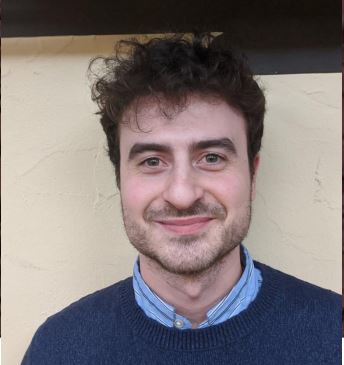INSTITUTE SEMINAR
Astrocyte-neuron interactions shape cortico-striatal circuits to control goal-directed behaviors
Speaker
Francesco Paolo Ulloa Severino
Date and time
June 9 2023 12:30
Place
Instituto Cajal
Abstract
Learning everyday tasks, such as walking, drinking from a cup, or playing the guitar, requires our brains to form and reshape connections between neuronal cells. Even the slightest error in the cellular and molecular processes underlying our cognitive and motor functions can have devastating consequences on everyday activities. Due to their importance for forming brain circuits and because they are lost in diseases, neurobiology focused extensively on neurons. In the last few decades, the field realized that neurons are not the only cell type that controls brain function and behaviors. Indeed, across species, a non-neuronal, glial cell type called astrocytes are fundamentally important for regulating neuronal activity, plasticity, and connectivity, which are mechanisms required for behavioral control, learning, and memory. Previous studies showed that astrocytes secrete synaptogenic proteins, which bind neuronal receptors to control excitatory and inhibitory synaptogenesis during development. However, the role of these signaling pathways in adult experience- dependent synaptogenesis and behavioral control are unclear. I will describe our findings on the role of Thrombospondin-a2d-1 interaction in adult synaptogenesis and its control of operant behaviors.
Affiliation and short bio

Francesco Paolo Ulloa Severino received his Ph.D. in November 2017 from the International School for Advanced Studies (SISSA) in Trieste, Italy. He was awarded the Doctor Europaeus program, which together with SISSA, financed his graduate studies. He was trained to work with primary rat neuronal culture. Then he spent the first year of his graduate studies setting up an in vitro calcium imaging system to study the activity of neural networks. Under the supervision of Professor Vincent Torre, he was soon involved in an international project called “ Neuroscaffold” in which both European and Chinese partners collaborated for the designing and characterization of biocompatible scaffold-based three-dimensional neuronal networks. His work was devoted to design and fabricate three dimensional scaffolds and to find innovative ways to culture primary brain cells on these scaffolds to further test them for neuroscience applications and tissue engineering. Francesco`s main contribution was to adapt the calcium imaging technology to study the activity of primary neuronal networks in 3D and show that scaffold-based approaches are particularly suitable for 3D-neural cultures. He characterized these culture models based on different physiological properties. He showed that they are better suited to perform in vitro drug screenings, as well as time-lapse brain tumour infiltration studies. These experiences resulted in a great deal of highly cited publications, some of which, as the last author, thanks to his passion for mentoring young graduate students who are now successful investigators around the world.
In January 2018, Francesco moved to Duke University (NC, USA) for his postdoctoral studies. Mentored by Dr. Cagla Eroglu and Dr. Henry Yin, he developed several projects to unveil the role of astrocyte-neuron interactions in adult experience-dependent synaptogenesis and their control of goal-directed behaviors. Funded by the NIH grants and the Regeneration Next postdoctoral fellowship, his studies focused on cortico-striatal projections between the Anterior Cingulate Cortex and the dorsomedial striatum. By combining cellular, genetic, and molecular approaches with quantitative behavioral analysis, optogenetic, and live imaging in vivo, he found that the experience-dependent increase in the number of excitatory synapses is the cellular mechanism utilized to reduce efforts when the effort/gain relation is not favourable. This mechanism can be regulated by the astrocytes-neurons synaptogenic pathway triggered by the Thrombospondin-α 2 -1 interaction. As a postdoc, Francesco kept training technician, undergraduate, and graduate students. He also contributed to the development of other projects between the two laboratories. Together, his work produced 4 peer-reviewed publications and 2 preprints currently in revision.
In April 2022, Francesco received a Young investigator award from the Joe W. and Dorothy Dorsett Brown Foundation to develop his independent research trajectory. In January 2023, he moved as an independent PI to the Cajal Institute, sponsored by the Ramon y Cajal Award. He is now developing his independent research projects aiming to unveil the cellular and molecular mechanisms regulating adult astrocyte structural plasticity and their role in controlling motivated voluntary behaviors in health and diseases.
Related publications with the topic
Ulloa Severino FP*, Lawal O, Sakers K, Wang S., Kim N, Friedman A, Johnson S., Sriworarat C, Hughes RN, Soderling S, Kim IH, Yin HH*, Eroglu C*. Training-Induced Circuit-Specific Excitatory Synaptogenesis is Required for Effort Control. bioRxiv, 2022. (*Co-correspondings) In revision
Lawal O, Ulloa Severino FP*, Eroglu C*. The role of astrocyte structural plasticity in regulating neural circuit function and behavior. Glia, 2022. (*Co-correspondings)
